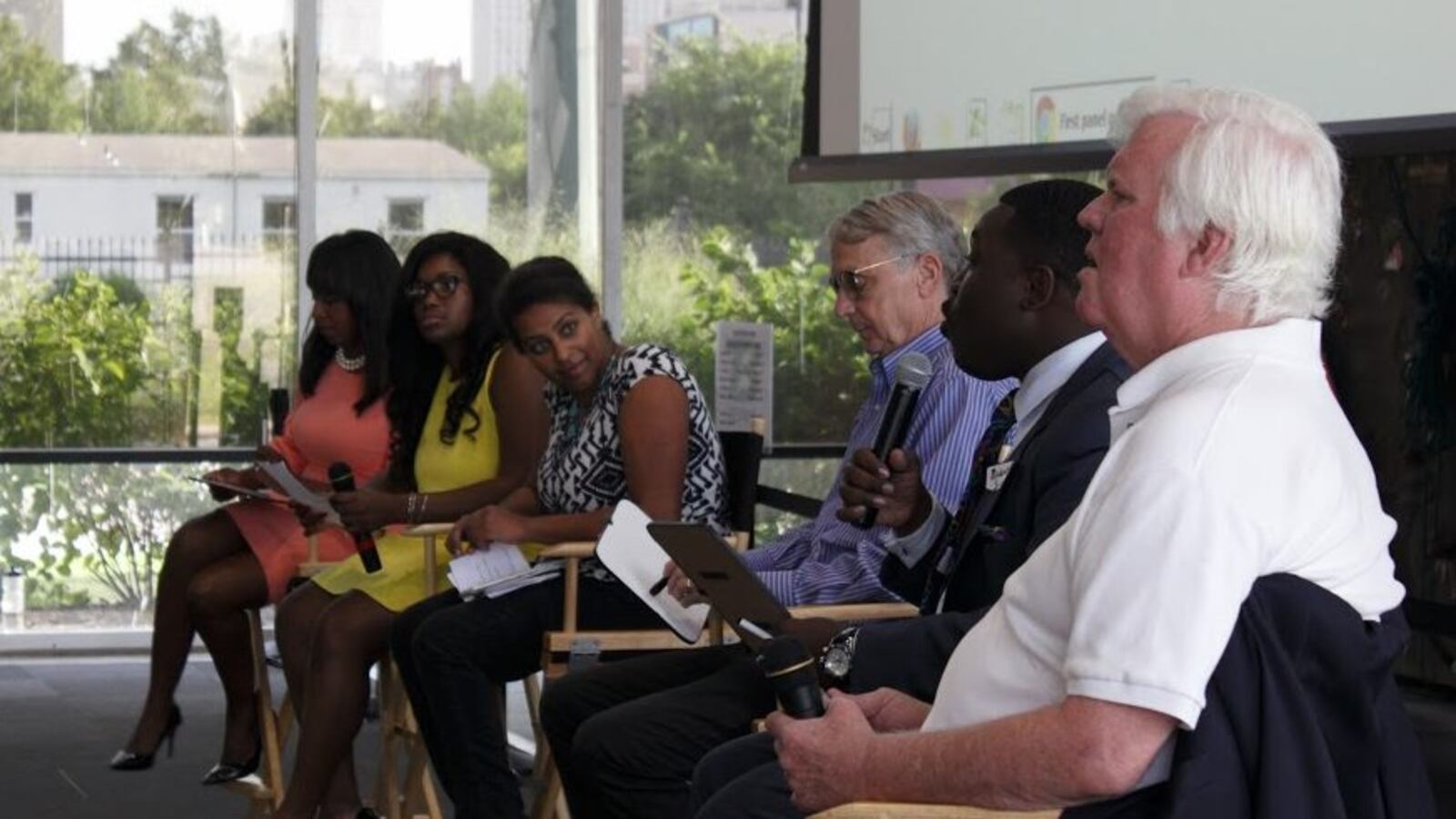With a high-stakes election just two weeks away, Chalkbeat Tennessee hosted its first-ever school board candidate forum on Thursday.
Fifteen candidates are vying for seats from four of Shelby County Schools’ nine districts: 1, 6, 8, and 9. The most contested race is in District 9, where four new candidates are challenging incumbent Mike Kernell. That’s a major difference from two years ago, when four of five open board seats went uncontested.
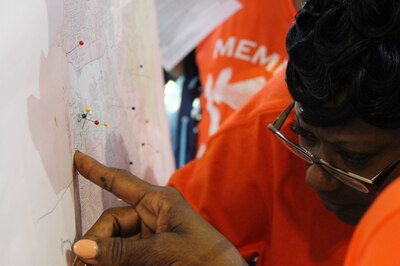
About 250 Memphis students, parents, grandparents and educators, attended the candidate forum. The audience could use a texting software to weigh in on brief, “rapid fire” questions posed to the candidates, as well as write in their own questions for the candidates to answer.
“I’m ready for a change,” said retired police officer and public education advocate Claudette Boyd, who used to patrol the Orange Mound area and noticed a “revolving door” of faculty turnovers at its schools.
“I’m here to hear first-hand information and ask questions,” she added. “Why are we still busing kids out of their neighborhoods? Shouldn’t all schools be the same? Why do we have inferior schools and superior schools?”
The event was split into two panels. The first was between Districts 1 and 8, and the second was between Districts 6 and 9. Here are some takeaways from those discussions.
PANEL 1
Parents were seen as having the biggest impact on a child’s education.
Out of five choices — parents, teachers, district leadership, county government, and state government — 53 percent of the audience chose parents as playing the most important role in a child’s education.
“Our parents should be the most important people regardless of what’s going on in the schools,” Michael Scruggs said, explaining that they spend the most time with their children.
Chris Caldwell said parents are most important because “they are the first teachers.” Michelle Robinson McKissack said she favored more teacher-parent interaction, and Jerry Cunningham said the board should prioritize getting parents more engaged.
Candidates favor student voices on the board.
When asked if students should be able to serve on the school board, all participating candidates noted that students should have some say in the decision-making process. McKissack said she supported students being in an advisory role, but that their “number one job is to be a student.” That means they shouldn’t be expected to serve in an “official capacity.”
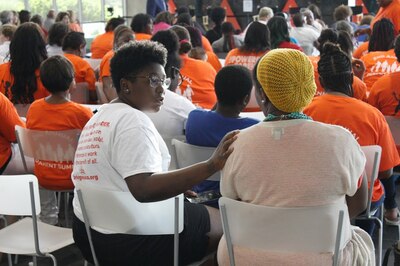
“They’re the ones most affected by what happens in the school buildings,” said Caldwell, who noted that there is already a policy for students to participate on the board. “We wouldn’t have school or school districts if it weren’t for the kids.”
“Our students are our audience,” Scruggs added.
Ninety percent of the voting audience favored student voices on the board, including recent graduates Emily Burkhead and Kira Tucker.
“Closer to our age, we’re becoming more aware of what’s going on,” said Burkhead, a Rhodes College student and White Station High graduate, citing the emergence of more recent movements like Black Lives Matter and Take ‘Em Down 901. (Take ‘Em Down 901 is an effort to remove two Confederate monuments from parks in downtown Memphis.)
“There just comes a time to say we’re about to get serious about the school system that we need to see in our community,” added Tucker, a junior at Emory University and a graduate of Central High School.
PANEL 2
Candidates backed expanding the community school model.
District 9 is home to Belle Forest Elementary, the system’s only “community school,” or a school that addresses a student’s social and family needs in addition to their educational needs.
Mike Kernell said he’s an advocate for community schools because from what he’s seen, they’ve done the best job of keeping parents involved.
Kori Hamner, Rhonnie Brewer, and Joyce Dorse-Coleman have visited the school and were pleased with what they saw: students and faculty who “love their school” and “love their community,” Hamner said.
“They bought into what was going on there,” Dorse-Coleman said. “That’s what we need in all of our schools.”
School closures have dramatic impacts on neighborhoods.
Many of the school closures in recent years have been in District 6, and some of the school building are still sitting empty. How should a district determine if a school should close, and what should happen with the empty buildings?
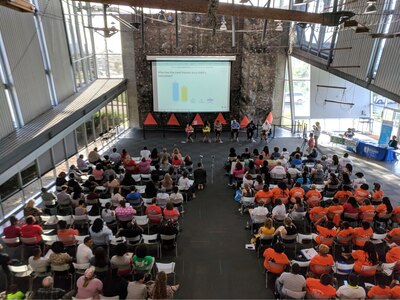
Minnie Hunter acknowledged she didn’t know a lot about why schools close, but felt like many should stay open, so students don’t have to travel across town to go to another school. Percy Hunter, meanwhile, said he was in favor of letting the community decide what happens to their schools, and how they should stop one from closing.
“An empty school building presents a pretty desolate description for our communities,” said Shante Avant, adding that local residents and community organizations like churches should decide how to fill that space.
The board must act to ensure grade-changing stops.
Shelby County Schools has had several investigations into improper grade changing to pass students along to the next grade even if they aren’t ready. Chalkbeat asked the candidates what they would do to make sure this practice stops.
Kernell said he was in favor of new software to monitor grades, and Dorse-Coleman said teachers shouldn’t have to “teach students to the test” anyway. Avant also acknowledged the board’s recent efforts to install a hotline for those who suspect such activities.
“We have to continue to be open and transparent,” she said.
BOTH PANELS
K-2 suspensions should be banned, candidates said.
Some cities, such as New York City, have banned suspensions among its youngest students, and a bill last year
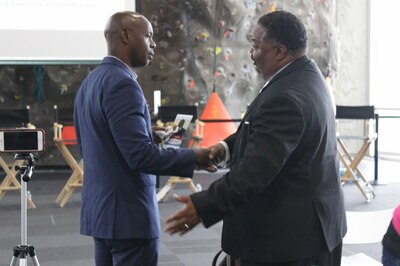
sponsored by State Rep. Raumesh Akbari of Memphis would have stopped the practice in Tennessee unless the student is violent, but it failed. Chalkbeat asked candidates from Districts 6 and 9 about K-2 suspensions, and all favored ending early-childhood suspensions. Seventy-five percent of the audience polled also supported a ban.
“At the age of 5, 6, 7, 8, they’re just finding out who they are,” said Dorse-Coleman. “We need to address the underlying problem instead of waiting until they’re 15, 16, 17 and we want to lock them up.”
“There is no reason that at that age, suspension is absolutely necessary,” Brewer said.
Scruggs said suspensions do not work at any age. He remembered a time when a student “cursed him out” and Scruggs was tempted to write him up. But then he found out the student was up for adoption.
“He wasn’t cursing me out,” he said. “He was cursing the situation out. … We need to put our money in the right places to help our kids.”
Most candidates were unprepared to have discussions about sexual harassment and protecting lesbian, gay, bisexual, transgender, and queer students.
Both panels were asked what they could do to better protect LGBTQ students from discrimination, as well as how they would protect all students from sexual harassment and assault.
Caldwell and Scruggs said the board takes bullying and harassment very seriously, and that there are measures in place to make sure violators are reprimanded. McKissack stumbled on the letters “LGBTQ” before noting that “we can always do things better.”
“There is no abuse that I’ve seen” of LGBTQ students, Cunningham said, comparing today to the 1960s.
Several audience members shouted, “Wrong!”
“Somebody says I’m wrong?” Cunningham said. “Well, I haven’t seen it.”
Percy Hunter said issues of bullying and abuse of LGBTQ students must be addressed on a school-by-school basis and that the school would have to know if the parent was in support of the “student’s decision” before taking action.
A recent high school graduate Celia Kaplan took issue with that response.
“What do you mean by choice?” she shouted.
After the event, Hunter clarified that he meant the student’s choice to come out.
“But what are you going to make schools safer so that students can be out in high school?” she asked him after the event. Hunter said that a decision like that would be up to the entire board.
Minnie Hunter said that LGBTQ students should be put in a separate classes, similar to sex education, to learn about the issues that affect them, to which Avant disagreed.
“I don’t believe that we should isolate or create opportunities for folks to criminalize or harass LGBT students,” Avant said. “We have to embrace diversity.”
Kernell advised students with issues to visit his website and file a complaint, and Dorse-Coleman said that discrimination is a “learned behavior.” Avant, Hamner, and Brewer said it was necessary for the board to do more to ensure schools are safe for students in traditionally marginalized groups.
Maude Bryeans, a counselor and Memphis native who has worked in Shelby County Schools for 20 years, said the candidates generally struggled to answer questions concerning concrete plans, and that they simply “gave opinions” instead.
“As an educator, I want to see a plan, I want to see your vision, and I want to know that you know your stuff,” she said, charging that some of the claims made by the candidates were incorrect, such as McKissack’s comment that uniforms went away after six municipal districts split from the Shelby County Schools district in 2014, and Cunningham’s comment that principals’ salaries were increased when the schools merged.
“I was glad to see someone put all the candidates out there though, and have people be able to listen to them,” she said. “I don’t remember this robust of a dialogue in the past. That is at least showing, it seems like, that people care.”
Event co-sponsors included BRIDGES, a student leadership program; the education advocacy organizations Stand for Children and Campaign for School Equity; and Awesome Without Borders.
Early voting runs through July 28. The election will take place on Aug. 2. Have you done your homework? Read more about the candidates and their stances on education issues here.
Correction: July 23, 2018: This story has been updated to clarify Caldwell’s position that parents have the largest impact on a child’s education.

